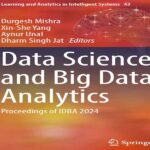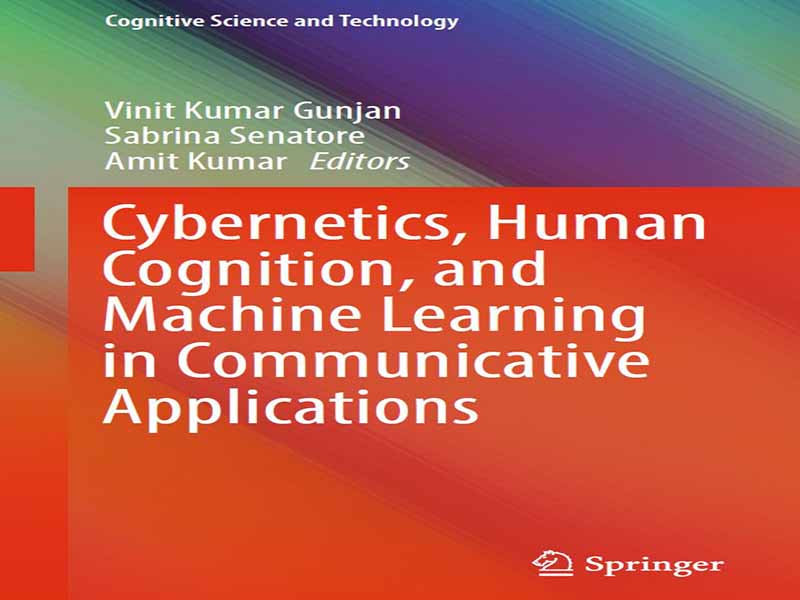- عنوان کتاب: Cybernetics, Human Cognition,and ML in Communicative Applications
- نویسنده: Vinit Kumar Gunjan
- حوزه: سایبرنتیک
- سال انتشار: 2025
- تعداد صفحه: 424
- زبان اصلی: انگلیسی
- نوع فایل: pdf
- حجم فایل: 6.58 مگابایت
این مجموعه با هدف انتشار آثاری در تقاطع هوش محاسباتی و علوم شناختی منتشر میشود که واقعاً میانرشتهای هستند و استانداردها و قراردادهای هر یک از رشتههای تشکیلدهنده را برآورده میکنند، در عین حال انعطافپذیری لازم برای کاوش روشها و پارادایمهای جدید را دارند. هوش مصنوعی در ابتدا توسط دانشمندان کامپیوتر و روانشناسان تأسیس شد و تمایل دارد با تمرکز نمادین راکد بماند. هوش محاسباتی از هوش مصنوعی جدا شد تا استعارههای بحثبرانگیزی را از مدلهای عصبی و مدلهای فازی گرفته تا مدلهای تکاملی و مدلهای فیزیکی بررسی کند، اما تمایل دارد در سطح استعاره باقی بماند. علوم شناختی که به عنوان توانایی مدلسازی نظریهها با کامپیوترها شکل گرفت، مکانیسمی یکپارچه برای رسمیسازی و آزمایش نظریههای زبانشناسی، روانشناسی و فلسفه فراهم کرد، اما پیشینههای رشتهای دانشمندان شناختی تکرشتهای تمایل دارد این مکانیسم را در سطح یک استعاره آزاد نگه دارد. سیستمهای کاربر محور و عوامل انسانی نیز به طور مشابه باید توسعه سیستمهای فیزیکی یا اطلاعاتی را آگاه کنند، اما اغلب در حوزههای کانونی جامعهشناسی و روانشناسی باقی میمانند، به طوری که مهندسان و تکنسینها فاقد مهارتهای عوامل انسانی و دانشمندان علوم اجتماعی فاقد مهارتهای فناوری هستند. ویژگی کلیدی این است که مجلدات باید با استانداردهای هر دو حوزه علوم سخت (کامپیوتر و مهندسی) و علوم اجتماعی/بهداشتی (زبانشناسی، روانشناسی، عصبشناسی، فلسفه و غیره) مطابقت داشته باشند. تمام مجلدات توسط متخصصانی با صلاحیتهای رسمی در هر دو طرف این تقسیمبندی (و با درک و سابقه همکاری در سراسر پیوند بین رشتهای) بررسی خواهند شد.
This series aims to publish work at the intersection of Computational Intelligence and Cognitive Science that is truly interdisciplinary and meets the standards and conventions of each of the component disciplines, whilst having the flexibility to explore new methodologies and paradigms. Artificial Intelligence was originally founded by Computer Scientists and Psychologists, and tends to have stagnated with a symbolic focus. Computational Intelligence broke away from AI to explore controversial metaphors ranging from neural models and fuzzy models, to evolutionary models and physical models, but tends to stay at the level of metaphor. Cognitive Science formed as the ability to model theories with Computers provided a unifying mechanism for the formalisation and testing of theories from linguistics, psychology and philosophy, but the disciplinary backgrounds of single discipline Cognitive Scientists tends to keep this mechanism at the level of a loose metaphor. User Centric Systems and Human Factors similarly should inform the development of physical or information systems, but too often remain in the focal domains of sociology and psychology, with the engineers and technologists lacking the human factors skills, and the social scientists lacking the technological skills. The key feature is that volumes must conform to the standards of both hard (Computing & Engineering) and social/health sciences (Linguistics, Psychology, Neurology, Philosophy, etc.). All volumes will be reviewed by experts with formal qualifications on both sides of this divide (and an understanding of and history of collaboration across the interdisciplinary nexus).
این کتاب را میتوانید از لینک زیر بصورت رایگان دانلود کنید:
Download: Cybernetics, Human Cognition,and ML in Communicative Applications




































نظرات کاربران